|
Books Should Be Free Loyal Books Free Public Domain Audiobooks & eBook Downloads |
|
|
Books Should Be Free Loyal Books Free Public Domain Audiobooks & eBook Downloads |
|
Religion |
|---|
|
Book type:
Sort by:
View by:
|
By: Helen Van-Anderson (1859-) | |
|---|---|
 The Right Knock A Story
The Right Knock A Story
| |
By: Helena P. Blavatsky (1831-1891) | |
|---|---|
 From the Caves and Jungles of Hindostan
From the Caves and Jungles of Hindostan
| |
By: Helena Petrovna Blavatsky (1831-1891) | |
|---|---|
 Secret Doctrine.Volume I. Cosmogenesis.Part II. The Evolution Of Symbolism.
Secret Doctrine.Volume I. Cosmogenesis.Part II. The Evolution Of Symbolism.
In this work of comparative religion, ontology and epistemology, Mme. Blavatsky presents science as a belief system of as much value as others in contributing to human knowledge of the seven secret keys to understanding through mathematics and intuition. A comparative study of ancient texts and their commentators over more than three thousand years. | |
By: Hélène A. Guerber (1859-1929) | |
|---|---|
 Myths of the Norsemen From the Eddas and Sagas
Myths of the Norsemen From the Eddas and Sagas
| |
By: Henrietta Vaders | |
|---|---|
 Wikkey A Scrap
Wikkey A Scrap
| |
By: Henry Drummond | |
|---|---|
 The Greatest Thing in the World and Other Addresses
The Greatest Thing in the World and Other Addresses
The spiritual classic The Greatest Thing In the World is a trenchant and tender analysis of Christian love as set forth in the thirteenth chapter of I Corinthians. The other addresses speak to other aspects of Christian life and thought. | |
 Natural Law in the Spiritual World
Natural Law in the Spiritual World
| |
 Beautiful Thoughts
Beautiful Thoughts
| |
By: Henry F. (Henry Frey) Lutz | |
|---|---|
 To Infidelity and Back
To Infidelity and Back
| |
By: Henry Frederick Cope (1870-1923) | |
|---|---|
 Religious Education in the Family
Religious Education in the Family
| |
By: Henry Harland (1861-1905) | |
|---|---|
 The Lady Paramount
The Lady Paramount
| |
By: Henry Melvill Gwatkin (1844-1916) | |
|---|---|
 The Arian Controversy
The Arian Controversy
| |
By: Henry Pepwell (-1540) | |
|---|---|
 The Cell of Self-Knowledge : seven early English mystical treatises printed by Henry Pepwell in 1521
The Cell of Self-Knowledge : seven early English mystical treatises printed by Henry Pepwell in 1521
| |
By: Henry Peter Brougham Brougham and Vaux (1778-1868) | |
|---|---|
 The Fallen Star, or, the History of a False Religion
The Fallen Star, or, the History of a False Religion
| |
By: Henry Rider Haggard (1856-1925) | |
|---|---|
 Pearl Maiden
Pearl Maiden
This is the story of Miriam, an orphan Christian woman living in Rome in the first century. She falls in love with a Roman officer, but knows that her Jewish childhood playmate loves her too and will do anything in order to get her love in return. | |
By: Henry Rogers (1806-1877) | |
|---|---|
 The Eclipse of Faith Or, A Visit To A Religious Sceptic
The Eclipse of Faith Or, A Visit To A Religious Sceptic
| |
By: Henry Sloane Coffin (1877-1954) | |
|---|---|
 Some Christian Convictions A Practical Restatement in Terms of Present-Day Thinking
Some Christian Convictions A Practical Restatement in Terms of Present-Day Thinking
| |
By: Henry Steel Olcott (1832-1907) | |
|---|---|
 The Life of Buddha and Its Lessons
The Life of Buddha and Its Lessons
| |
By: Henry T. (Henry Thorne) Sell | |
|---|---|
 Studies in the Life of the Christian
Studies in the Life of the Christian
| |
By: Henry Thayer Niles (1825-1901) | |
|---|---|
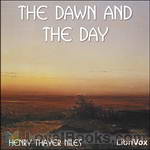 The Dawn and the Day
The Dawn and the Day
The Dawn and the Day, or, The Buddha and the Christ, Part 1 is a text similar to the epic poetry of Homer or, more accurately, classic Hindu texts, such as the Baghavad-Gita. | |
By: Henry van Dyke (1852-1933) | |
|---|---|
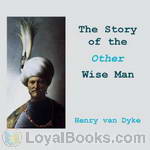 The Story of the Other Wise Man
The Story of the Other Wise Man
You know the story of the Three Wise Men of the East, and how they travelled from far away to offer their gifts at the manger-cradle in Bethlehem. But have you ever heard the story of the Other Wise Man, who also saw the star in its rising, and set out to follow it, yet did not arrive with his brethren in the presence of the young child Jesus? Of the great desire of this fourth pilgrim, and how it was denied, yet accomplished in the denial; of his many wanderings and the probations of his soul;... | |
By: Henry Van Dyke (1852-1933) | |
|---|---|
 The Mansion
The Mansion
| |
 The Story of the Other Wise Man
The Story of the Other Wise Man
| |
By: Henry Ware (1794-1843) | |
|---|---|
 Hints on Extemporaneous Preaching
Hints on Extemporaneous Preaching
| |
By: Henryk Sienkiewicz (1846-1916) | |
|---|---|
 Quo Vadis: a narrative of the time of Nero
Quo Vadis: a narrative of the time of Nero
| |
By: Herbert Allen Giles (1845-1935) | |
|---|---|
 Religions of Ancient China
Religions of Ancient China
An overview of the religions of China, beginning with Fu Hsi, B.C. 2953-2838, and continuing through the 19th Century. | |
By: Herbert J. Hall (1870-1923) | |
|---|---|
 The Untroubled Mind
The Untroubled Mind
A very wise physician has said that “every illness has two parts—what it is, and what the patient thinks about it.” What the patient thinks about it is often more important and more troublesome than the real disease. What the patient thinks of life, what life means to him is also of great importance and may be the bar that shuts out all real health and happiness. The following pages are devoted to certain ideals of life which I would like to give to my patients, the long-time patients who have especially fallen to my lot. | |
By: Hesba Stretton (1832-1911) | |
|---|---|
 Cobwebs and Cables
Cobwebs and Cables
| |
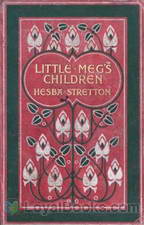 Little Meg's Children
Little Meg's Children
This is the touching and endearing story of Little Meg and her trials and difficulties as she does her best to look after 'her children' after their mother dies. Father is away at sea and is expected every day, but when father's ship comes in he is not aboard! With the help of her new friend and neighbour Kitty, she finds out that he was 'took bad' on the other side of the world, who knows when or if he will ever make it back. Meanwhile, Little Meg must take care of Robby and baby. There are better days and worse days... | |
By: Hezekiah Butterworth (1839-1905) | |
|---|---|
 The Story of the Hymns and Tunes
The Story of the Hymns and Tunes
| |
By: Hilaire Belloc (1870-1953) | |
|---|---|
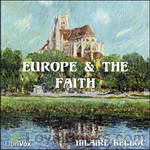 Europe and the Faith
Europe and the Faith
The Catholic brings to history (when I say "history" in these pages I mean the history of Christendom) self-knowledge. As a man in the confessional accuses himself of what he knows to be true and what other people cannot judge, so a Catholic, talking of the united European civilization, when he blames it, blames it for motives and for acts which are his own. He himself could have done those things in person. He is not relatively right in his blame, he is absolutely right. As a man can testify to his own motive so can the Catholic testify to unjust, irrelevant, or ignorant conceptions of the European story; for he knows why and how it proceeded... | |
By: Hosea Ballou (1771-1852) | |
|---|---|
 A Series of Letters in Defence of Divine Revelation
A Series of Letters in Defence of Divine Revelation
| |
By: Howard D. Pollyen | |
|---|---|
 The Secret of the Creation
The Secret of the Creation
| |
By: Howard J. (Howard James) Chidley (1878-1966) | |
|---|---|
 Fifty-Two Story Talks to Boys and Girls
Fifty-Two Story Talks to Boys and Girls
| |
By: Hugh Binning (1627-1653) | |
|---|---|
 The Works of the Rev. Hugh Binning
The Works of the Rev. Hugh Binning
| |
By: Hugh Black (1868-1953) | |
|---|---|
 Friendship
Friendship
The idea, so common in the ancient writers, is not all a poetic conceit, that the soul of a man is only a fragment of a larger whole, and goes out in search of other souls in which it will find its true completion. We walk among worlds unrealized, until we have learned the secret of love. We know this, and in our sincerest moments admit this, even though we are seeking to fill up our lives with other ambitions and other hopes. In spite of the vulgar materialism of our day, we do feel that the spiritual side of life is the most important, and brings the only true joy... | |
By: Hugh Latimer (1485?-1555) | |
|---|---|
 Sermons on the Card
Sermons on the Card
| |
By: Hugh Miller (1802-1856) | |
|---|---|
 The Testimony of the Rocks or, Geology in Its Bearings on the Two Theologies, Natural and Revealed
The Testimony of the Rocks or, Geology in Its Bearings on the Two Theologies, Natural and Revealed
| |
By: Hugh Walpole (1884-1941) | |
|---|---|
 Cathedral
Cathedral
Sir Hugh Seymour Walpole, CBE (1884 – 1941) was an English novelist. He was the son of an Anglican clergyman, intended for a career in the church but drawn instead to writing. Among those who encouraged him were the authors Henry James and Arnold Bennett. His skill at scene-setting, vivid plots, and high profile as a lecturer brought him a large readership in the United Kingdom and North America. He was a best-selling author in the 1920s and 1930s, but has been largely neglected since his death... | |
By: Ignatius Loyola Donnelly (1831-1901) | |
|---|---|
 Atlantis: The Antediluvian World
Atlantis: The Antediluvian World
"Atlantis: The Antediluvian World is a book published during 1882 by Minnesota populist politician Ignatius L. Donnelly, who was born in Philadelphia, Pennsylvania during 1831. Donnelly considered Plato's account of Atlantis as largely factual and attempted to establish that all known ancient civilizations were descended from this supposed lost land. Many of its theories are the source of many modern-day concepts we have about Atlantis, like the civilization and technology beyond its time, the origins of all present races and civilizations, a civil war between good and evil, etc." | |
By: Irving Bacheller (1859-1950) | |
|---|---|
 Vergilius A Tale of the Coming of Christ
Vergilius A Tale of the Coming of Christ
| |
By: Isaac Barrow (1630-1677) | |
|---|---|
 Sermons on Evil-Speaking
Sermons on Evil-Speaking
| |
By: Isaac Landman | |
|---|---|
 Stories of the Prophets (Before the Exile)
Stories of the Prophets (Before the Exile)
| |
By: Isaac Massey Haldeman (1845-1933) | |
|---|---|
 Christ, Christianity and the Bible
Christ, Christianity and the Bible
| |
 Why I Preach the Second Coming
Why I Preach the Second Coming
| |
By: Isaac Myer (1836-1902) | |
|---|---|
 Scarabs The History, Manufacture and Symbolism of the Scarabæus in Ancient Egypt, Phoenicia, Sardinia, Etruria, etc.
Scarabs The History, Manufacture and Symbolism of the Scarabæus in Ancient Egypt, Phoenicia, Sardinia, Etruria, etc.
| |
By: Isaac Samuel Reggio (1784-1855) | |
|---|---|
 A Guide for the Religious Instruction of Jewish Youth
A Guide for the Religious Instruction of Jewish Youth
| |
By: Isaac Watts (1674-1748) | |
|---|---|
 Hymns and Spiritual Songs
Hymns and Spiritual Songs
| |
 A Short Essay Toward the Improvement of Psalmody
A Short Essay Toward the Improvement of Psalmody
| |
By: Isabel C. (Isabel Coston) Byrum (1870-1938) | |
|---|---|
 The value of a praying mother
The value of a praying mother
| |
 The Poorhouse Waif and His Divine Teacher
The Poorhouse Waif and His Divine Teacher
| |
By: Isabella Alden (1841-1930) | |
|---|---|
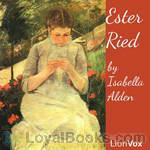 Ester Ried
Ester Ried
Authored by Isabella M. Alden under the pen name “Pansy.” Ester Ried’s life is a dull monotony of toiling at her family’s boardinghouse. She’s overworked, jealous and cranky, a poor example of a Christian to her family and associates. She awakens to a new attitude and commitment due to an extended visit with her cousin. | |
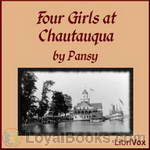 Four Girls at Chautauqua
Four Girls at Chautauqua
Authored by Isabella M. Alden under the pen name “Pansy.” First in the Chautauqua Girls series. Four friends – spoiled, quirky Ruth; fun-loving and mischievous Eurie; poor, independent and brainy Marion; and meek, approval-seeking Flossy – attend Chautauqua on a lark, and their lives are changed forever. (Chautauqua is an adult education movement in the United States, highly popular in the late 19th and early 20th centuries. The Chautauqua brought entertainment and culture for the whole community, with speakers, teachers, musicians, entertainers, preachers and specialists of the day.) | |
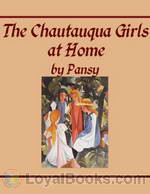 The Chautauqua Girls at Home
The Chautauqua Girls at Home
Sequel to Four Girls at Chautauqua. Ruth, Flossy, Eurie, and Ruth return home as new Christians, eager to begin working. Their new faith clashes with their old lives, which they must overcome, as well as the prejudices of friends and acquaintances. | |
By: Isabella Lilias Trotter (1853-1928) | |
|---|---|
 Parables of the Cross
Parables of the Cross
Death is the Gate of Life. There was deep insight in those old words. For man's natural thought of death is that of a dreary ending in decay and dissolution. And from his standpoint he is right: death as the punishment of sin is an ending.But far other is God's thought in the redemption of the world. He takes the very thing that came in with the curse, and makes it the path of glory. Death becomes a beginning instead of an ending, for it becomes the means of liberating a fresh life.And so the hope that lies in these parable lessons of death and life is meant for those only who are turning to Him for redemption... | |
 Parables of the Christ-life
Parables of the Christ-life
| |
By: Isabella M. Alden | |
|---|---|
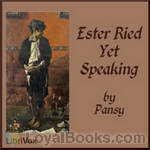 Ester Ried Yet Speaking
Ester Ried Yet Speaking
Authored by Isabella M. Alden under the pen name “Pansy.” Fourth in the Chautauqua Girls series. Alfred Ried (brother of Ester Ried from that series) wants to help the hundreds of poor street boys in his city to come to faith and improve their conditions, but is discouraged and overwhelmed with the task. Enter Flossy (Shipley) Roberts, a willing worker who focuses on 7 such boys and especially on one. | |
By: Israel Zangwill (1864-1926) | |
|---|---|
 Children of the Ghetto
Children of the Ghetto
In this 1892 novel of London's Jewish East End, Israel Zangwill sets the apparently irrational and decidedly indecorous religious practices of transplanted eastern European Jews against the forces of assimilation. Zangwill's knowledge of Yiddishkeit and skill in melodrama created a series of unforgettable vignettes that had a significant effect on the public perception of this much stigmatized immigrant group. Israel Zangwill (1864-1926) was born in London of Russian and Polish parents. He coined the term cultural "melting pot". | |
By: J Hudson Taylor (1832-1905) | |
|---|---|
 Union and Communion - or Thoughts on the Song of Solomon
Union and Communion - or Thoughts on the Song of Solomon
This little book, whose design is to lead the devout Bible student into the Green Pastures of the Good Shepherd, thence to the Banqueting House of the King, and thence to the service of the Vineyard, is one of the abiding legacies of Mr. Hudson Taylor to the Church. In the power of an evident unction from the Holy One, he has been enabled herein to unfold in simplest language the deep truth of the believer's personal union with the Lord, which under symbol and imagery is the subject of The Song of Songs. (From the Foreword by J Stuart Holden). | |
By: J. A. (Jacob Asbury) Regester (1892-1914) | |
|---|---|
 The Worship of the Church and The Beauty of Holiness
The Worship of the Church and The Beauty of Holiness
| |
By: J. A. MacCulloch (1868-1950) | |
|---|---|
 The Religion of the Ancient Celts
The Religion of the Ancient Celts
| |
By: J. Allanson Picton (1832-1910) | |
|---|---|
 Pantheism, Its Story and Significance Religions Ancient and Modern
Pantheism, Its Story and Significance Religions Ancient and Modern
| |
By: J. C. (Jens Christian) Aaberg (1877-1970) | |
|---|---|
 Hymns and Hymnwriters of Denmark
Hymns and Hymnwriters of Denmark
| |
By: J. C. Ryle (1816-1900) | |
|---|---|
 Practical Religion
Practical Religion
The present volume contains a series of papers about "practical religion," and treats of the daily duties, dangers, experience, and privileges of all who profess and call themselves true Christians. | |
By: J. Dodd (James Dodd) Jackson (1861-1918) | |
|---|---|
 The Message and the Man: Some Essentials of Effective Preaching
The Message and the Man: Some Essentials of Effective Preaching
| |
By: J. E. (John Ebenezer) Esslemont (1874-1925) | |
|---|---|
 Bahá’u’lláh and the New Era
Bahá’u’lláh and the New Era
| |
By: J. E. (Judson Eber) Conant (1867-1955) | |
|---|---|
 The Church, the Schools and Evolution
The Church, the Schools and Evolution
| |
By: J. F. (John Fletcher) Hurst (1834-1903) | |
|---|---|
 History of Rationalism Embracing a Survey of the Present State of Protestant Theology
History of Rationalism Embracing a Survey of the Present State of Protestant Theology
| |
By: J. H. (Joseph Hugh) Beibitz (1868-1936) | |
|---|---|
 Gloria Crucis addresses delivered in Lichfield Cathedral Holy Week and Good Friday, 1907
Gloria Crucis addresses delivered in Lichfield Cathedral Holy Week and Good Friday, 1907
| |
By: J. M. Judy | |
|---|---|
 Questionable Amusements and Worthy Substitutes
Questionable Amusements and Worthy Substitutes
| |
By: J. Manning Potts (1895-1973) | |
|---|---|
 Prayers of the Early Church
Prayers of the Early Church
There are prayers of our Lord, the apostles, the martyrs, and the saints covering the period of the Early Church from its beginning through the fifth century. There are some prayers from each of the first five centuries. The treasure house from which to choose is almost unlimited. It is a vast and fruitful field and anyone is amply rewarded who delves into it.The prayers have been selected primarily for their spiritual and devotional content. Many have been laid aside with regret that they could not be included in this book, but its compass in size is set and only so many can be used... | |
By: J. N. (John Napper) Worsfold | |
|---|---|
 The Vaudois of Piedmont A Visit to their Valleys
The Vaudois of Piedmont A Visit to their Valleys
| |
By: J. Paterson (John Paterson) Smyth (1852-1932) | |
|---|---|
 The Gospel of the Hereafter
The Gospel of the Hereafter
| |
By: J. R. (James Russell) Miller (1840-1912) | |
|---|---|
 Personal Friendships of Jesus
Personal Friendships of Jesus
| |
 Making the Most of Life
Making the Most of Life
| |
By: J. Rendel (James Rendel) Harris (1852-1941) | |
|---|---|
 Memoranda Sacra
Memoranda Sacra
| |
By: J. W. Byers | |
|---|---|
 Sanctification
Sanctification
| |
By: J. W. Keyworth | |
|---|---|
 The Golden Shoemaker or 'Cobbler' Horn
The Golden Shoemaker or 'Cobbler' Horn
| |
By: J. Wilbur (John Wilbur) Chapman (1859-1918) | |
|---|---|
 And Judas Iscariot Together with other evangelistic addresses
And Judas Iscariot Together with other evangelistic addresses
| |
By: Jacob Abbott (1803-1879) | |
|---|---|
 Caleb in the Country
Caleb in the Country
| |
By: Jacob Bryant (1715-1804) | |
|---|---|
 A New System; or, an Analysis of Antient Mythology. Volume I.
A New System; or, an Analysis of Antient Mythology. Volume I.
| |
By: James Allen | |
|---|---|
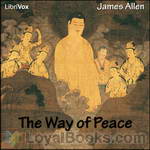 The Way of Peace
The Way of Peace
The Way of Peace is your guide to the power of meditation; self and truth; the acquirement of spiritual power; the realization of selfless love; entering into the infinite; saints, sages, and saviors; the law of service; and the realization of perfect peace. | |
By: James Buchanan (1804-1870) | |
|---|---|
 Modern Atheism under its forms of Pantheism, Materialism, Secularism, Development, and Natural Laws
Modern Atheism under its forms of Pantheism, Materialism, Secularism, Development, and Natural Laws
| |
By: James Cardinal Gibbons (1834-1921) | |
|---|---|
 The Faith of Our Fathers
The Faith of Our Fathers
The Faith of Our Fathers: A Plain Exposition and Vindication of the Church Founded by Our Lord Jesus Christ is a book published in 1876 by archbishop James Gibbons, which became a best-selling conversion manual in the United States, and by 1980 was in its 111th printing.(From the preface) “The object of this little volume is to present in a plain and practical form an exposition and vindication of the principal tenets of the Catholic Church. It was thought sufficient to devote but a brief space to such Catholic doctrines and practices as are happily admitted by Protestants, while those that are controverted by them are more elaborately elucidated... | |
By: James Challis (1803-1882) | |
|---|---|
 An Essay on the Scriptural Doctrine of Immortality
An Essay on the Scriptural Doctrine of Immortality
| |
By: James Denney (1856-1917) | |
|---|---|
 The Atonement and the Modern Mind
The Atonement and the Modern Mind
| |
By: James E. Talmage | |
|---|---|
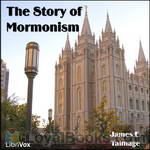 The Story of Mormonism
The Story of Mormonism
A few years before James E. Talmage was called to serve as an apostle for the Church of Jesus Christ of Latter-day Saints (also known as the "Mormon" church), he gave a series of lectures at universities such as the University of Michigan and Cornell, describing the history of the Church. These lectures were later compiled and published as 'The Story of "Mormonism."' It is a concise, yet informative summary for all interested in learning the history and beliefs of the "Mormon" church. (Summary by Nathan Markham) | |
By: James Edward Talmage (1862-1933) | |
|---|---|
 Jesus the Christ A Study of the Messiah and His Mission According to Holy Scriptures Both Ancient and Modern
Jesus the Christ A Study of the Messiah and His Mission According to Holy Scriptures Both Ancient and Modern
| |
By: James Frazer (1854-1941) | |
|---|---|
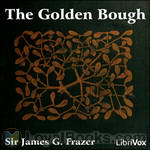 The Golden Bough
The Golden Bough
The Golden Bough: A Study in Magic and Religion is a wide-ranging comparative study of mythology and religion, written by Scottish anthropologist Sir James George Frazer (1854–1941). It offered a modernist approach, discussing religion dispassionately as a cultural phenomenon, rather than from a theological perspective. Although most of its theories have subsequently been exploded (the most famous one being that of the relationship between magic, religion and science), its impact on contemporaneous European literature was substantial... | |
By: James Freeman Clarke (1810-1888) | |
|---|---|
 Orthodoxy: Its Truths And Errors
Orthodoxy: Its Truths And Errors
| |
By: James H. (James Henry) Snowden (1852-1936) | |
|---|---|
 A Wonderful Night; An Interpretation Of Christmas
A Wonderful Night; An Interpretation Of Christmas
| |
By: James H. Moon (1830-) | |
|---|---|
 Water Baptism A Pagan and Jewish Rite but not Christian, Proven By Scripture And History Confirmed By The Lives Of Saints Who Were Never Baptized With Water
Water Baptism A Pagan and Jewish Rite but not Christian, Proven By Scripture And History Confirmed By The Lives Of Saints Who Were Never Baptized With Water
| |
By: James Hamilton (1814-1867) | |
|---|---|
 Life of Bunyan [Works of the English Puritan divines]
Life of Bunyan [Works of the English Puritan divines]
| |
By: James Hudson Taylor (1832-1905) | |
|---|---|
 A Ribband of Blue And Other Bible Studies
A Ribband of Blue And Other Bible Studies
| |
 Separation and Service or Thoughts on Numbers VI, VII.
Separation and Service or Thoughts on Numbers VI, VII.
| |
By: James Janeway (1636?-1674) | |
|---|---|
 Stories of Boys and Girls Who Loved the Saviour A Token for Children
Stories of Boys and Girls Who Loved the Saviour A Token for Children
| |
By: James Kennedy (1815-1899) | |
|---|---|
 Life and Work in Benares and Kumaon, 1839-1877
Life and Work in Benares and Kumaon, 1839-1877
| |
By: James Kerr (1847-1905) | |
|---|---|
 The Covenants And The Covenanters Covenants, Sermons, and Documents of the Covenanted Reformation
The Covenants And The Covenanters Covenants, Sermons, and Documents of the Covenanted Reformation
| |